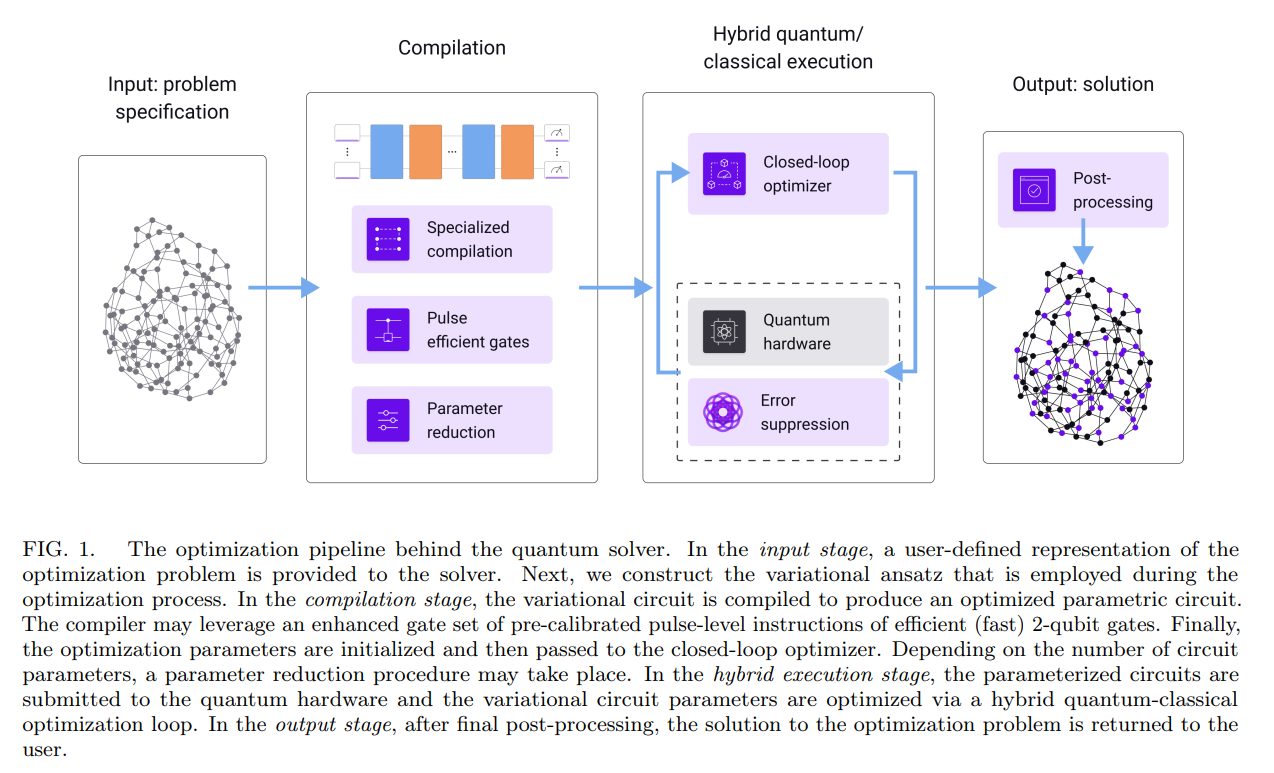Quantum optimization using a 127-qubit gate-model IBM quantum computer can outperform quantum annealers for nontrivial binary optimization problems
2024-06-03 11:16
2631 浏览 We introduce a comprehensive quantum solver for binary combinatorial optimization problems on
gate-model quantum computers that outperforms any published alternative and consistently delivers
correct solutions for problems with up to 127 qubits. We provide an overview of the internal workflow,
describing the integration of a customized ansatz and variational parameter update strategy, efficient
error suppression in hardware execution, and overhead-free post-processing to correct for bit-flip
errors. We benchmark this solver on IBM quantum computers for several classically nontrivial
unconstrained binary optimization problems—the entire optimization is conducted on hardware with
no use of classical simulation or prior knowledge of the solution. First, we demonstrate the ability to
correctly solve Max-Cut instances for random regular graphs with a variety of densities using up to
120 qubits, where the graph topologies are not matched to device connectivity. These demonstrations
are at least 4× larger than previous successful implementations on a trapped-ion quantum computer
and deliver up to 9× increased likelihood of success for identical problem instances at the scale of 32
qubits. Next, we apply the solver to higher-order binary optimization and successfully search for the
ground state energy of a 127-qubit spin-glass model with linear, quadratic, and cubic interaction
terms. Use of this new quantum solver increases the likelihood of finding the minimum energy by up
to ∼ 1, 500× relative to published results using a DWave annealer, and it can find the correct solution
when the annealer fails. Furthermore, for both problem types, the Q-CTRL solver outperforms a
heuristic local solver used to indicate the relative difficulty of the problems pursued. Overall, these results represent the largest quantum optimizations successfully solved on hardware to date, and demonstrate the first time a gate-model quantum computer has been able to outperform an annealer for a class of binary optimization problems.

Article: https://arxiv.org/abs/2406.01743
